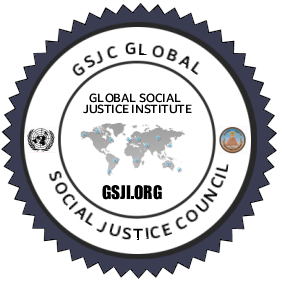GLOBAL SOCIAL JUSTICE INSTITUTE
b. Powers and functions the General Assembly, the Security Council, the Economic and Social Coun- cil, and the Trusteeship Council;
report annually to the General Assembly on the work of the Organization; and to bring to the attention of the
Security Council any matter which, in his opinion, threatens international peace and security. The
Secretary-General therefore functions as both the conscience of the international community and the servant of
Member States.
| ||
Virus Justice Italian Freedom Day J23 History of Racism Book-HR Join Commission Ethics Badges Site Map Education Policy Agenda Top Social Justice Issues Anti Slavery Book Truth and Justice Commission USA Ethnic Justice Truth and Justice Commission * Anti Slavery Society - Election Intrigrity George Mentz Colorado Springs Coronavirus Biden Fault Negligence |
Accreditation Bodies: www.GAFM.com * www.GAFM.org * www.CertifiedProjectManager.eu * www.AAFM.org * Certified Project Manager * Certified e-Commerce Consultant * Royal Law Society * Royal Business Society * Royal Business College * Royal Fellows * Royal Economics Academy * Oxford Law School * AAFM * Certified International Project Manager *

